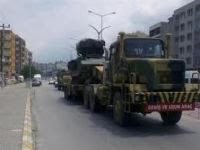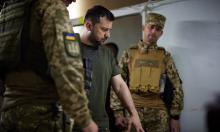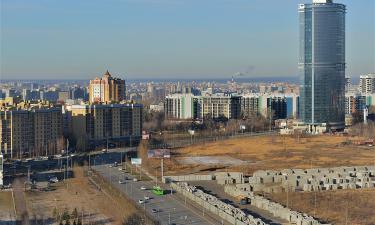UN: Cuba proposes to eradicate illicit arms trafficking
Cuba proposed on Friday (6th) at the United Nations that an international agreement be made that will help to prevent, combat and eradicate the illicit arms trade, whose negative consequences were denounced - and are suffered by many people and States in the world.
Speaking before the UN Conference on the arms trade, the representative of Cuba, Ambassador Rodolfo Benítez Verson, explained that his country will not support any treaty that affects the legitimate interests of national security and defense of the Caribbean island.
"We also will not support an instrument that is not fully consistent with the principles enshrined in the Charter of the United Nations, including non-interference in internal affairs, respect for sovereign equality, political independence and territorial integrity," said the diplomat.
Benítez Verson added that it is also indispensable that the future instrument does not affect or limit in any way the right to self-defense, enshrined in Article 51 of the UN Charter.
"We do not share the position of those who identify the success of this Conference as adopted on the 27th of July, at any price, an Arms Trade Treaty, whatever," the Cuban delegate stressed during his speech to the plenary.
"For Cuba, the real achievement is in getting a solid universal and effective instrument, which is a result of an inclusive and transparent process that takes fully into account the views and concerns of all States," Benitez emphasized.
"We are in a complex conference. There is no precedent in many years of meetings where all United Nations Member States have met in four weeks to adopt a legally binding pact for a law on weapons," he commented.
Ambassador Benítez Verson noted that "the Treaty we have discussed is particularly complex, it refers to weapons that almost all states have. For the vast majority of countries, conventional weapons are an important component in their defense strategies," he said.
"We note with concern that some emphasize overly ambitious and unrealistic proposals, and try to minimize or even ignore the legitimate concerns of others," he said.
We call to act on the basis of reasonable goals and practices, to achieve an effective and viable instrument. We favor a text that is as simple as possible, which does not become an additional burden, the Cuban representative noted.
"Cuba will not support any criteria that can be applied in a discriminatory and selective manner, or that can be easily manipulated to establish conditions and exert pressure," the delegate of Havana made clear.
We will defend an instrument that preserves and fully guarantees the right of every State to manufacture, import and possess arms for their self-defense and security needs, Benitez confirmed.
He indicated that a criterion of great relevance is the prohibition of arms transfers to non-state actors, or who is not duly authorized by the States. "This should be clearly reflected in the Treaty," he said.
"Equally, we will promote the prohibition of arms transfers to states that carry out measures of force or threat of the use of force inconsistent with the provisions of the UN Charter, including acts of aggression," said the diplomat.
The United Nations Arms Trade Conference resumed its sessions on July 4, after resolving discrepancies regarding the representation status of Palestine and the Vatican at the event.
The official inauguration took place after it was decided that the Palestinians and the Vatican maintain their status as observers at the meeting, which ends next July 27, and it predicts the approval of a Treaty on the Commerce of Arms (TCA).
The UN secretary general, Ban Ki-moon, said the common goal of participants is to achieve a robust TCA and mandatory compliance with a real impact on the lives of millions of human beings who suffer from armed conflict, repression and violence .
Source: Prensa Latina
Translated from the Portuguese version by:
Lisa Karpova
Pravda.Ru

Subscribe to Pravda.Ru Telegram channel, Facebook, RSS!




